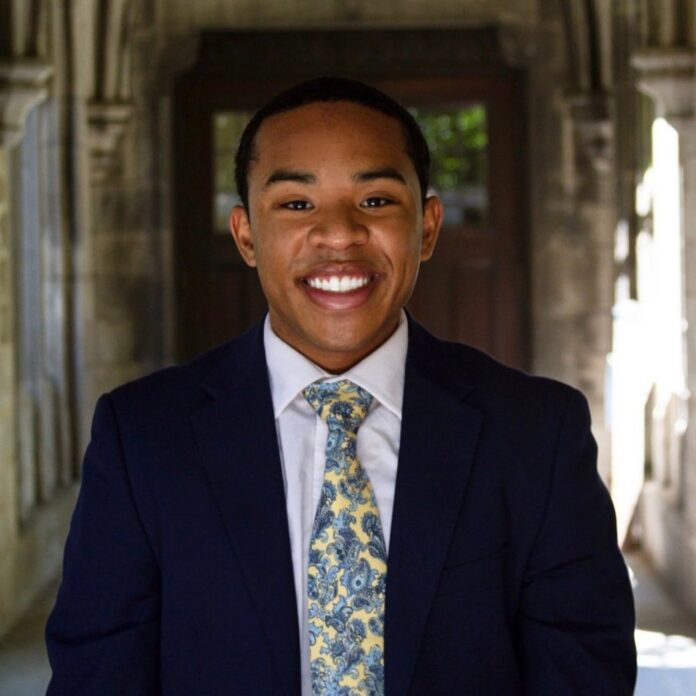In an interview with the Maroon, Jenkins reflected on his work in USG and addressed future goals.
Undergraduate Student Government (USG) President Elijah Jenkins [Alpha Phi Alpha Fraternity, Inc.] was reelected last month after a year in office. He spoke with the Maroon about his achievements so far in USG and what he hopes to accomplish in a second term.
Chicago Maroon: What initially inspired you to get involved with USG and run for president?
Elijah Jenkins: [My] first year, I knew I wanted to get involved and hopefully try to create more opportunities on campus through student government, so I ran [and became] a representative on College Council. [My] second year, I became College Council Chair, and then this year, I became the president.
I’d say the main reason why I ran for president this past year was really about training. After COVID hit, USG had a really big dive in membership, and part of that dive led to a lack of institutional knowledge and [member] retention. And so, there were people in my own year, and the years above me, [and] very few of their class [members] were [in USG], which means it was mostly underclassmen coming through. They’d be there for a year, and leave; there for a year, and leave. So, my job as president was to mostly work on: “How can we change the social mechanism of USG to make it seem like less of a job and [be] more inclusive and a community?”
So, I started creating general body meetings, social things. We would do training programs for USG members to not only increase retention in USG itself, but to ensure that USG members themselves could advocate more effectively.
CM: How do you define leadership, and how has your definition of leadership evolved since taking office?
EJ: When I first came into a leadership experience, I thought that leadership was defined by impact and results. But often I feel like, at least specifically to student government, results don’t come within a year, especially for longer projects.… At least for me, especially this past year, [I’ve been focused on] seeing engagement. USG members, especially first-years now, are trying to create their own initiatives and are learning how to do so by themselves.
I think that’s [important]—helping train other people [to be] leaders at home—because I’m going to graduate next year, and I would like USG to have members who know what they’re doing. Leadership for me now is mostly about creating opportunities on campus and ensuring that the next generation is able to continue the advocacy work themselves.






















